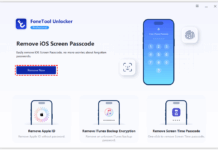In decades past, kids and teens eagerly awaited the opportunity to own their first car. These days, many kids are much more enthusiastic about obtaining their first smartphone. Most parents first give their kids their very own phone around age 11, when tweens are gaining more independence and need more reliable tools for communication.

Yet, though kids may seem responsible enough to use their own phones, parents would be wise to put a few key rules in place to keep their little ones — and their expensive mobile devices — safe.
Though different families will have different approaches to mobile device use and safety, here are a few guidelines that parents might want to impose on first-time smartphone users:
Having a Phone Is a Privilege
It is no secret that smartphones are addictive; in many ways, these convenient pieces of tech are designed to capture and hold users’ attention for as long as possible. Younger children tend to be less resistant to the allure of digital technology and thus more likely to develop bad smartphone habits that can put them at risk.
Thus, parents need to affirm from the very start that having a phone is a privilege that can be taken away if the child breaks any key rules. Some parents like to stress that the phone belongs to them, not to their child, which can help kids understand that they do not have free reign with their new device.
Parents might make it clear what kinds of behaviors will result in the confiscation of the phone, so kids know exactly where the line is.
Parents might also explain how long the phone will be unavailable should it be taken away, so kids won’t sink into unending despair.
Internet Safety Is Essential
Though parents might think of a smartphone as a tool to stay connected to their kids, their kids are thinking of their new devices as ways to get online.
However, the internet is undeniably a risky place, even for adults who understand how to recognize and avoid threats. Long before providing their children with smartphones, parents need to impart lessons about internet safety.
Then, when kids have smartphones in hand, parents should reiterate the importance of secure behavior and lay down the following rules:
The phone must have locks enabled. Kids must use a password to access their devices.
The phone must have antivirus tools installed and active. Parents can help set up antivirus for iPhone or other mobile security apps, but kids must not disable them.
The phone must keep apps updated. Kids must allow updates to download and install automatically to close any security gaps.
The phone must not be modified in any way. Kids must not jailbreak their devices, install third-party applications or otherwise change how the operating system functions.
Parental Controls Must Remain in Place

Some parents feel more comfortable providing their kids with smartphones if they have certain parental controls installed. Some parental control applications filter online content to ensure that children are not encountering any adult themes as they explore the web; others track messages and locations to provide parents with full visibility of their kids’ activity.
Regardless, parents should be transparent about their use of parental controls, though they should require that kids keep those controls in place.
All Downloads Will Be Parent-approved
Not only do certain apps threaten a smartphone’s security, but many apps are less than appropriate for use by kids of certain ages. Kids should recognize that before they download anything onto their device, they must ask for permission from one or both parents.
Parents can research apps or other tools online to understand what benefits they provide to their kids; parents might also talk to their children about why they want the download on their phones. If parents do decide not to permit the download, they should explain why, so kids will be less tempted to break the rules and download the app without permission.
There Will Be Screen Time Limits
Some research indicates that setting time limits on screen exposure helps kids develop healthier mental, physical, emotional, and social habits. Because screens are so addictive, children can and do use them to escape unwanted emotional experiences, like loneliness or sadness, and kids can become so dependent on their phones that regular daily activities become disrupted.
By placing limits on the amount of time a child can use their phone, parents are essentially guaranteeing that kids will continue to engage with regular life in a healthy way. To start, parents might verbally agree to limits with their kids, but if those limits are tested, parents can use a phone’s built-in screen time tools to force cooperation.
Smartphones are essential tools for interacting with the modern world, and children do need to gain smartphone skills as they age. With the right rules in place, parents can ensure healthy growth and development for their kids — and kids can enjoy the freedom and excitement of their first smartphone.



